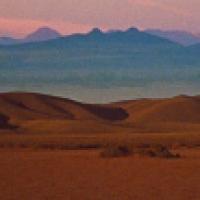Film series: Energy: quest & consequence

image from Anthropocene: The Human Epoch
Inspired by the Society for the Humanities’ ’19-’20 theme of “Energy,” Cornell Cinema has grouped a varied selection of films that explore different historical periods and humankind’s quest for sources of energy during those times. The series begins with film historian and director Thomas Elsaesser’s personal essay film The Sun Island that’s set in Germany between the wars (1927-1935) and during WWII, and includes surprising information about the origins of the green movement - about recycling, sus tainability, and living off the grid – before these ideas had been properly invented. Anthropocene: The Human Epoch, from the makers of Manufactured Landscapes, explores the consequences of working in the opposite direction, resulting in humanity's massive reengineering of the planet. The film is being screened throughout the country on September 25 to coincide with the U.N. Climate Summit in New York. The documentary Grit, which will be presented by Oscar-winning director Cynthia Wade, focuses on just one example of this reengineering, offering a lyrical exploration of the ongoing ramifications of a mudflow disaster, caused by natural gas drilling, that wiped out 16 villages in East Java, Indonesia in 2006. Set during the turn-of-the-century, There Will Be Blood tells an epic American capitalist story about the life of an uncompromising oilman played by Daniel Day-Lewis, in an Oscar-winning performance. The program Malena Szlam: Inexistent Time, which will be presented by experimental Chilean filmmaker Malena Szlam, includes the short film Altiplano, that takes place within a geological universe of ancestral salt flats, volcanic deserts, and coloured lakes. Filmed in the Andean Mountains in the traditional lands of the Atacameño, Aymara and Calchaquí-Diaguita in Northern Chile and Northwest Argentina, this landscape film is located at the heart of a natural ecosystem threatened by a century of saltpeter and nitrate mining practices and recent geothermic exploitation, and reveals an ancient land standing witness to all that is, was and will be. The series is cosponsored with the Society for the Humanities. Thomas Elsaesser’s visit is additionally cosponsored by the Departments of German Studies & PMA, Cornell Media Studies, and the Institute for German Cultural Studies. Cynthia Wade’s visit is additionally cosponsored by the Southeast Asia Program and PMA, and Malena Szlam’s by the Cornell Council for the Arts.





